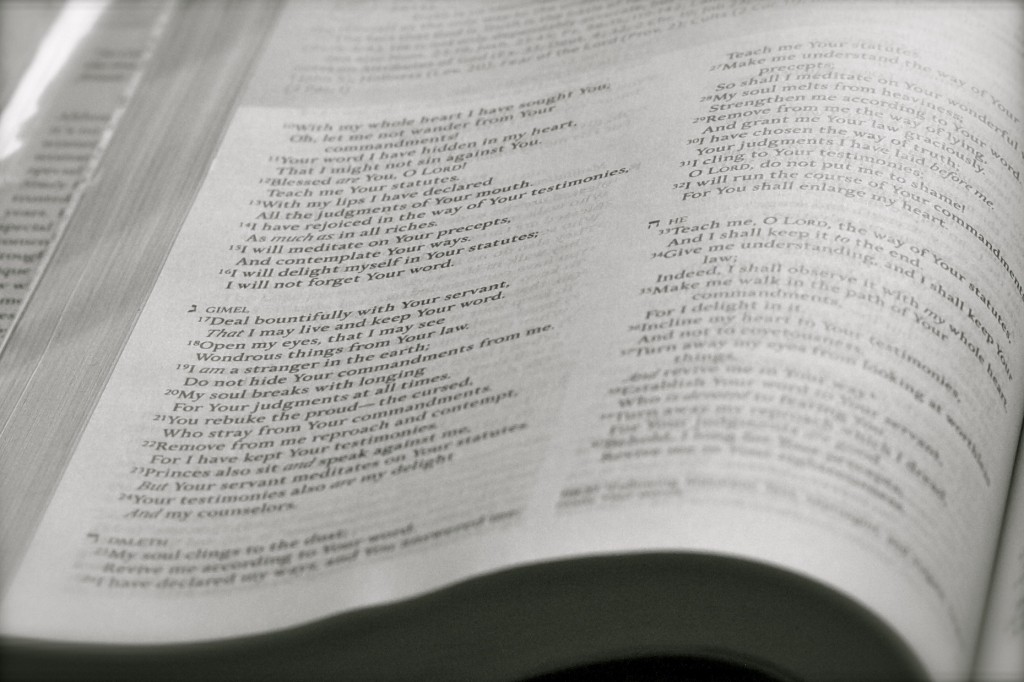As daunting as the laws of the Old Testament can sometimes be, digging into them often brings me a more complete, and more beautiful picture of the things that are closest to the heart of God. The nineteenth chapter of Leviticus is a great example.
God reminds His people to honor their father and mother, to rest on the Sabbath, not to make other images of gods and to keep the Lord as their God. He speaks about stealing and cheating, swearing falsely and defrauding neighbors. And in the midst of these commandments there are also glimpses of His heart for the poor and the broken, the oppressed and easily taken advantage of:
When you harvest the crops of your land, do not harvest the grain along the edges of your fields, and do not pick up what the harvesters drop. It is the same with your grape crop — do not strip every last bunch of grapes from the vines, and do not pick up the grapes that fall to the ground. Leave them for the poor and the foreigners living among you. I am the Lord your God. (v. 9 & 10)
Do not insult the deaf or cause the blind to stumble. You must fear your God; I am the Lord. (v. 14)
Stand up in the presence of the elderly, and show respect for the aged. Fear your God. I am the Lord. (v. 32)
Do not take advantage of foreigners who live among you in your land. Treat them like native-born Israelites, and love them as you love yourself. Remember that you were once foreigners living in the Land of Egypt. I am the Lord your God. (v. 33 & 34)
Each of these commandments ends with the same reminder: I am the Lord.
Why does God consistently remind His people that He is God, after telling them what He wants them to do? I think part of the reason is that the simple fact that He is God — our Creator — means that He deserves our respect and our obedience. He created us, and therefore probably has a pretty good idea what’s best for us, even for our own hearts.
I think His reminder “I am the Lord” also speaks of His character — the commandments reflect His heart and His character. He is a God full of concern for the broken, the needy, the easily oppressed.
As James put it a few thousand years later: Religion that God our Father accepts as pure and faultless is this: to look after orphans and widows in their distress, and to keep oneself from being polluted by the world. (James 1:27)
Time and time again God’s Word instructs His people to care for the poor — and this doesn’t just mean those of meager financial means. The foreigner, the orphan, the widow, the lame, the blind — concern for these was the very proof Jesus sent to John when His disciples asked if He (Jesus) was the Messiah, or if they should wait for another. Jesus said:
Go back and report to John what you hear and see: The blind receive sight, the lame walk, those who have leprosy are cleansed, the deaf hear, the dead are raised, and the good news is proclaimed to the poor. Blessed is anyone who does not stumble on account of me. (Matthew 11:4)
Jesus came to reflect and to demonstrate the very heart of His Father, God.
When we struggle in a world that seems like it doesn’t care about the poor, the broken, the impoverished or those with disabilities, it is a comfort to remember: these precious ones are, and always have been, very close to the heart of God.



